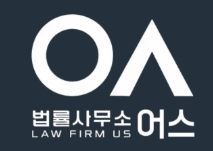Best Constitutional Law Lawyers in Seoul
Share your needs with us, get contacted by law firms.
Free. Takes 2 min.
List of the best lawyers in Seoul, South Korea
About Constitutional Law in Seoul, South Korea:
Constitutional Law in Seoul, South Korea refers to the body of laws and principles that govern the structure and function of the Korean government. The South Korean Constitution serves as the supreme law of the land, outlining the rights and duties of citizens, the powers of the government, and the structure of the various branches of government.
Why You May Need a Lawyer:
You may need a lawyer specializing in Constitutional Law in Seoul, South Korea if you are facing issues related to constitutional rights, government actions, administrative law, or disputes involving the interpretation of the Constitution. Whether you are a citizen seeking to protect your rights or a government entity navigating legal challenges, a lawyer can provide valuable legal guidance and support.
Local Laws Overview:
Key aspects of local laws relevant to Constitutional Law in Seoul, South Korea include the South Korean Constitution, the Constitutional Court of Korea, the National Assembly, and administrative procedures. These laws play a crucial role in safeguarding the rights of citizens, ensuring the separation of powers, and upholding the rule of law.
Frequently Asked Questions:
1. What is the role of the Constitutional Court of Korea?
The Constitutional Court of Korea is responsible for interpreting the Constitution, adjudicating disputes involving constitutional rights, and reviewing the constitutionality of laws and government actions.
2. How can I challenge a government decision under the South Korean Constitution?
You can challenge a government decision by filing a constitutional complaint with the Constitutional Court of Korea, alleging a violation of your constitutional rights.
3. What are some common constitutional issues faced by citizens in Seoul, South Korea?
Common constitutional issues include freedom of speech, privacy rights, due process, equality before the law, and limitations on government power.
4. Can the Constitution be amended in South Korea?
Yes, the South Korean Constitution can be amended through a specific procedure outlined in the Constitution itself.
5. How does the National Assembly contribute to Constitutional Law in South Korea?
The National Assembly plays a key role in passing laws that align with the Constitution, overseeing government actions, and holding the government accountable.
6. What are the powers of the President in relation to Constitutional Law?
The President of South Korea is responsible for upholding the Constitution, executing laws passed by the National Assembly, and representing the country in international affairs.
7. How do administrative procedures impact Constitutional Law in Seoul, South Korea?
Administrative procedures must comply with constitutional principles, such as due process, fairness, and accountability, to ensure that government actions are lawful and legitimate.
8. What is the significance of judicial review in Constitutional Law?
Judicial review allows courts to review the constitutionality of laws and government actions, ensuring they align with the Constitution and protect citizens' rights.
9. Are there specific rights guaranteed by the South Korean Constitution?
Yes, the South Korean Constitution guarantees rights such as freedom of speech, religion, assembly, and association, as well as the right to privacy, education, and equal treatment under the law.
10. How can a lawyer help me navigate Constitutional Law issues in Seoul, South Korea?
A lawyer specializing in Constitutional Law can provide legal advice, representation in court, assistance with drafting legal documents, and advocacy for your constitutional rights.
Additional Resources:
For additional resources on Constitutional Law in Seoul, South Korea, you can refer to the Constitutional Court of Korea, the Ministry of Government Legislation, the Korea Legislation Research Institute, and legal aid organizations offering support to individuals in need of legal assistance.
Next Steps:
If you require legal assistance in Constitutional Law in Seoul, South Korea, consider reaching out to a specialized lawyer or legal firm with experience in constitutional matters. They can assess your situation, provide personalized legal advice, and help you navigate the complexities of Constitutional Law to protect your rights and interests.
Lawzana helps you find the best lawyers and law firms in Seoul through a curated and pre-screened list of qualified legal professionals. Our platform offers rankings and detailed profiles of attorneys and law firms, allowing you to compare based on practice areas, including Constitutional Law, experience, and client feedback.
Each profile includes a description of the firm's areas of practice, client reviews, team members and partners, year of establishment, spoken languages, office locations, contact information, social media presence, and any published articles or resources. Most firms on our platform speak English and are experienced in both local and international legal matters.
Get a quote from top-rated law firms in Seoul, South Korea — quickly, securely, and without unnecessary hassle.
Disclaimer:
The information provided on this page is for general informational purposes only and does not constitute legal advice. While we strive to ensure the accuracy and relevance of the content, legal information may change over time, and interpretations of the law can vary. You should always consult with a qualified legal professional for advice specific to your situation.
We disclaim all liability for actions taken or not taken based on the content of this page. If you believe any information is incorrect or outdated, please contact us, and we will review and update it where appropriate.










